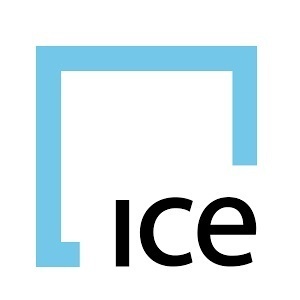ICE reports strong demand in US renewable fuel futures

May 19, 2023
BY Intercontinental Exchange Inc.
Intercontinental Exchange Inc., a leading global provider of data, technology, and market infrastructure, today announced strong demand for U.S. renewable identification numbers (RINs) as increasing numbers of participants with RIN compliance obligations hedge price risk associated with mandated targets for incorporating renewable fuels into transportation fuel.
RINs are credits generated to track and enforce compliance with the U.S. federal Renewable Fuel Standard (RFS) program, which requires U.S. transportation fuel to include renewable fuels. Obligated parties under the RFS program include refiners and importers of transportation fuel in the U.S.
ICE offers the most liquid markets to trade RIN futures. By May 15, 2023, the equivalent of over 2 billion RINs had traded on ICE year to date, already surpassing the number traded during the entirety of 2022 where 1.6 billion traded. The equivalent of 627 million RINs traded during April 2023, a new record for a single month. Meanwhile, across ICE’s D6 ethanol and D4 biofuel futures (OPIS), open interest is at a record high equivalent to 727 million RINs.
Advertisement
Advertisement
The volume of RINs traded on ICE so far this year is equivalent to 1,400 refined product cargoes.
“RINs prices impact refined product market dynamics. Hedging RINs has become increasingly important to commercial market participants seeking to meet compliance obligations, protect their margins, determine crack spreads to create other products, and identify whether arbitrage opportunities exist to export transportation fuel,” said Jeff Barbuto, global head of oil markets at ICE. “It is great to see the momentum in volume and the number of participants continues to increase in these contracts.”
Advertisement
Advertisement
ICE’s renewable fuels futures markets form part of ICE’s extensive biofuels complex, which include ICE’s renewable volume obligation futures. The European biodiesel sector is traded predominantly as a differential to the global refined benchmark ICE Low Sulphur Gasoil, which is used as a proxy hedge due to its liquidity and open interest out to December 2026.
Related Stories
Iowa farmers have a new market opportunity for their 2025 soybean crop. Landus is expanding its Clean Fuel Regulation initiative, made possible by recent policy changes expected to increase Canada's demand for liquid biofuel.
Topsoe, a leading global provider of advanced technology and solutions for the energy transition, has been selected as the renewable diesel technology partner for CountryMark’s Mount Vernon, Indiana refinery.
Klobuchar, Moran introduce bipartisan legislation to support biorefineries, renewable chemicals, and biomanufacturing
Sens. Amy Klobuchar, D-Minn., and Jerry Moran, R-Kan., on July 31 announced the introduction of the Ag BIO Act. The legislation aims to update the USDA’s loan guarantee program to better support biorefining projects.
The U.S. exported 35,953.6 metric tons biodiesel and biodiesel blends of B30 or greater, according to data released by the USDA Foreign Agricultural Service on Aug. 5. Biodiesel imports were at 2,148.9 metric tons for the month.
XCF Global leverages Alfa Laval technology to enhance pretreatment capabilities at New Rise Reno facility
XCF Global Inc. on Aug. 5announced it leverages Alfa Laval Inc. pretreatment technology at its New Rise Reno biorefinery, a sustainable aviation fuel (SAF) plant located in Nevada. The pretreatment technology enhances feedstock flexibility at the plant.
Upcoming Events










